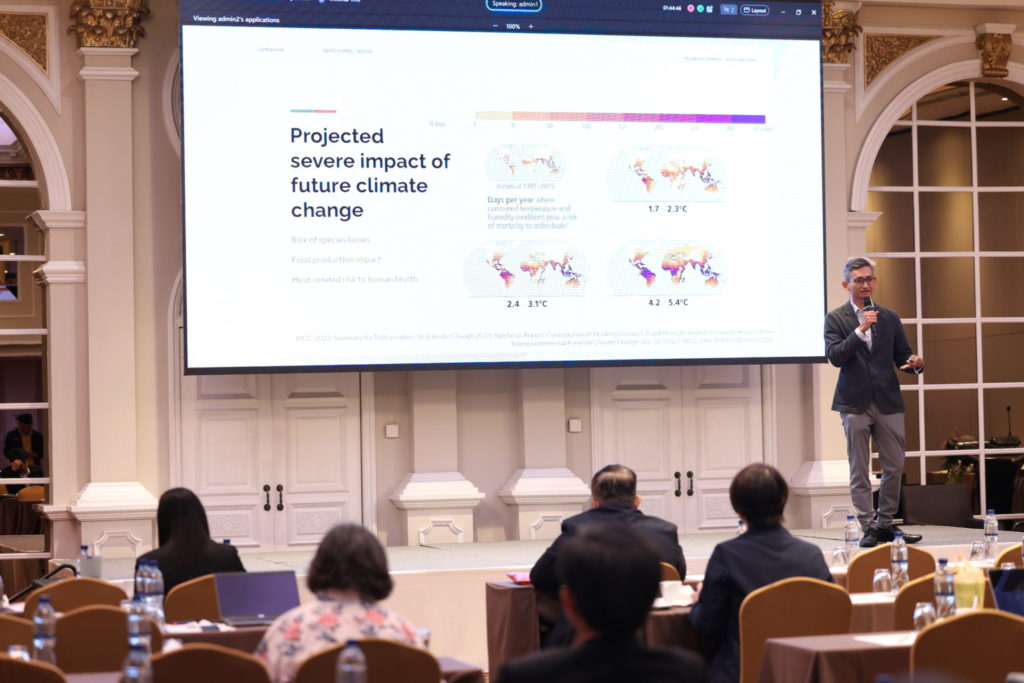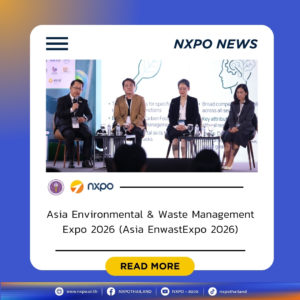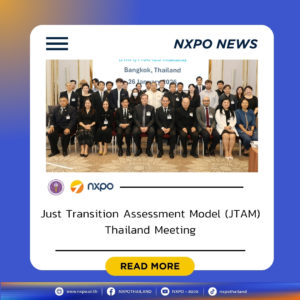NXPO, in collaboration with the National Science and Technology Development Agency (NSTDA), organized a Green Skills Forum on 30 June 2025 at Mandarin Hotel in Bangkok.
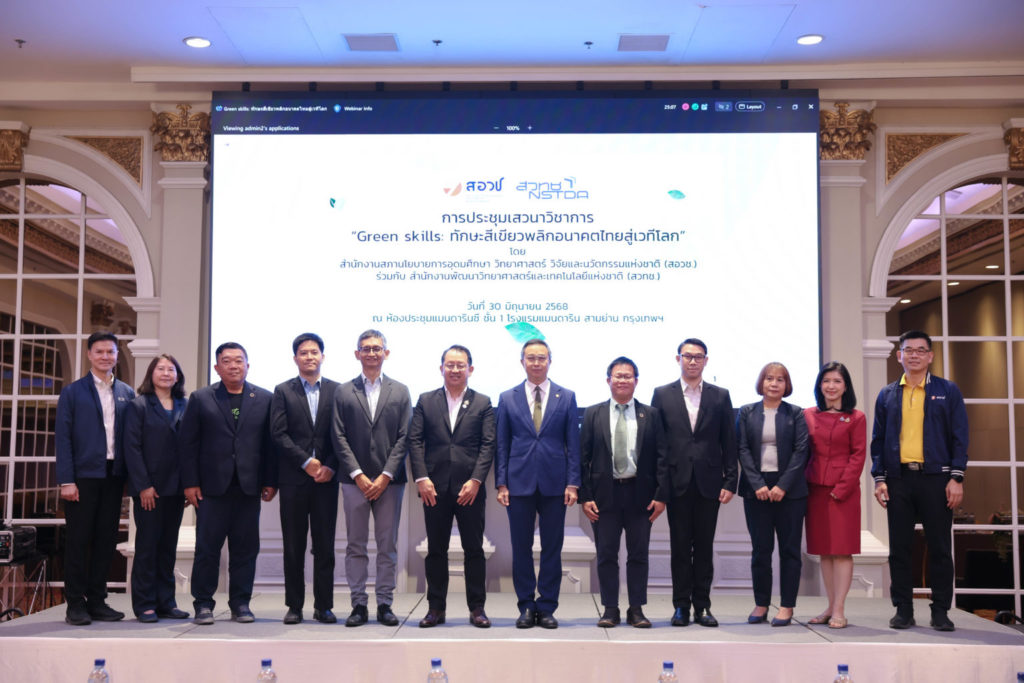
In his opening remarks, NXPO President Dr. Surachai Sathitkunarat emphasized the pivotal role of NXPO and NSTDA in spearheading Thailand’s Bio-Circular-Green Economy (BCG) policy, which has led to several key initiatives, including the Net Zero Campus project, designed to transform universities nationwide into net-zero institutions through the advancement and application of climate technologies.
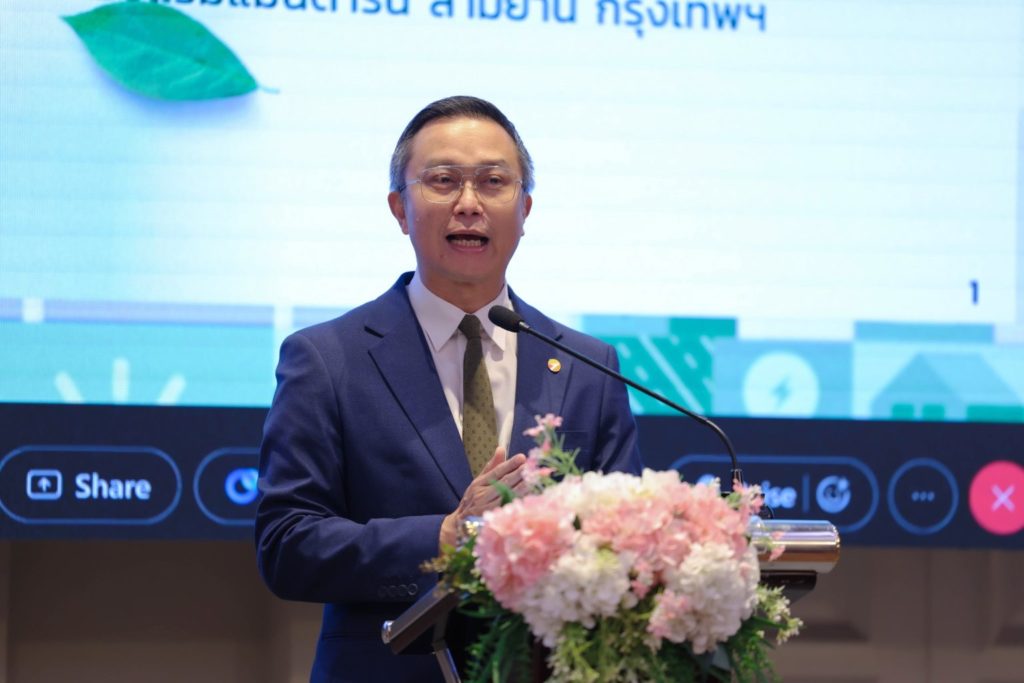
For this forum, NXPO partnered with the National Metal and Materials Technology Center (MTEC) of NSTDA to conduct a study identifying the green skills and knowledge needed within Thailand’s industrial sector. Through a series of focus group discussions involving government agencies, industries, academia, and experts from various fields, the study gathered valuable insights to inform future workforce development strategies supporting the green economy.
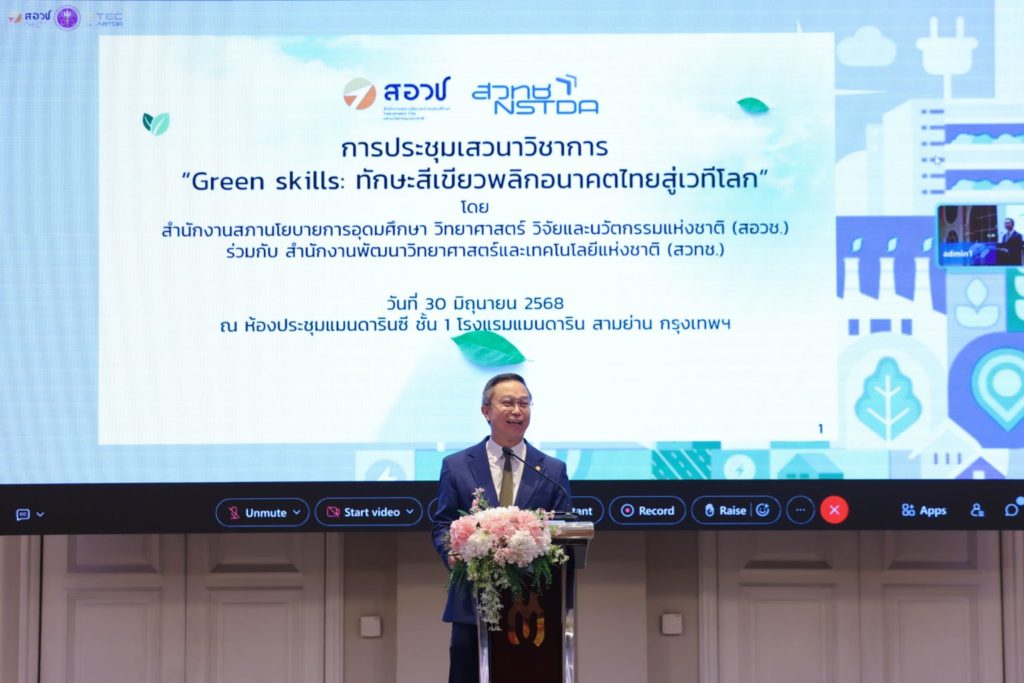
“The findings from this study will be instrumental in shaping education programs, learning models, and workforce development strategies aligned with green economy,” said Dr. Surachai.
The forum featured a panel discussion with prominent speakers including Assoc. Prof. Wongkot Wongsapai, NXPO Vice President; Asst. Prof. Dr. Marut Tangwattanachuleeporn, Acting Vice President for Academic Services and Lifelong Learning, Burapha University; a representative from the Office of the Permanent Secretary, Ministry of Higher Education, Science, Research and Innovation (MHESI); Dr. Chaipon Juntawang, Director of Children and Youth Environment Promotion Section, Department of Environment and Climate Change (DCCE); and Dr. Saruda Siriphattarapreecha, Executive Board Member and Sustainability Development Manager, Fortune Parts Industry Public Company Limited. The session was moderated by Dr. Saravanee Singtong, Director of the Sustainability Policy Division at NXPO.
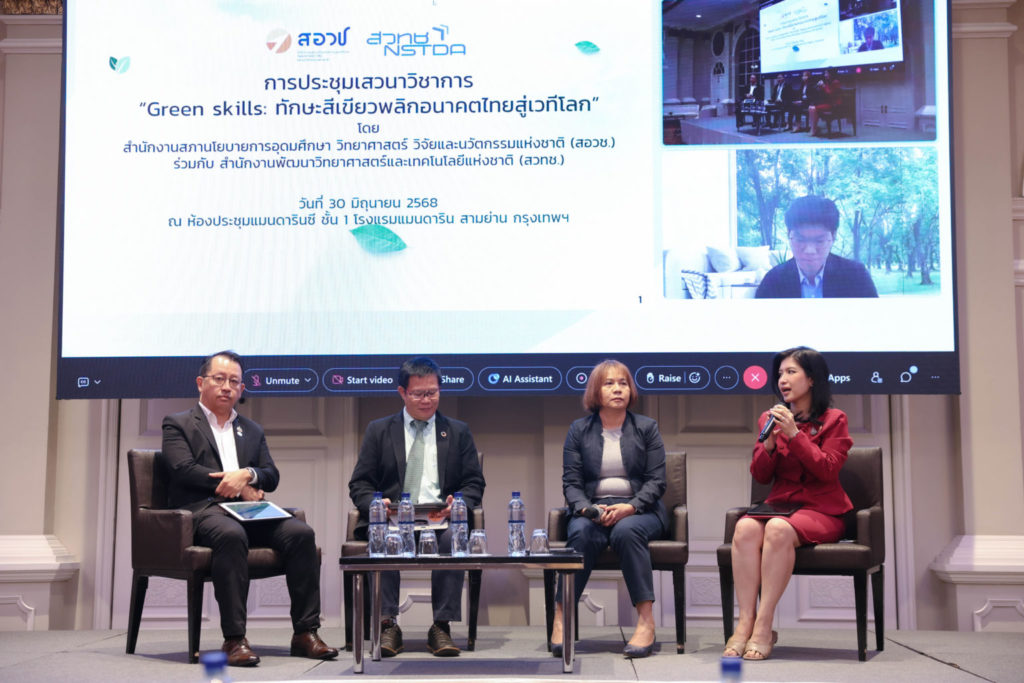

During the panel, Assoc. Prof. Wongkot presented Thailand’s labor market projections for 2025–2029, highlighting a demand for 1,087,548 positions requiring green skills. Citing LinkedIn’s Economic Graph data, he noted that between 2023 and 2024, global demand for green talent rose by 11.6%, while supply grew by only 5.6%. Moreover, hiring rates for green talent outpaced the general workforce by 54.6%, with even higher rates in the United States (80.3%) and Ireland (79.8%).
He also outlined key challenges facing Thailand’s higher education system, including the rise of multistage life models, disruptive technologies, demographic changes, educational inequality, and the expanding digital society — all of which call for a paradigm shift toward non-age group, non-degree, and personalized education, supported by new learning platforms and models.
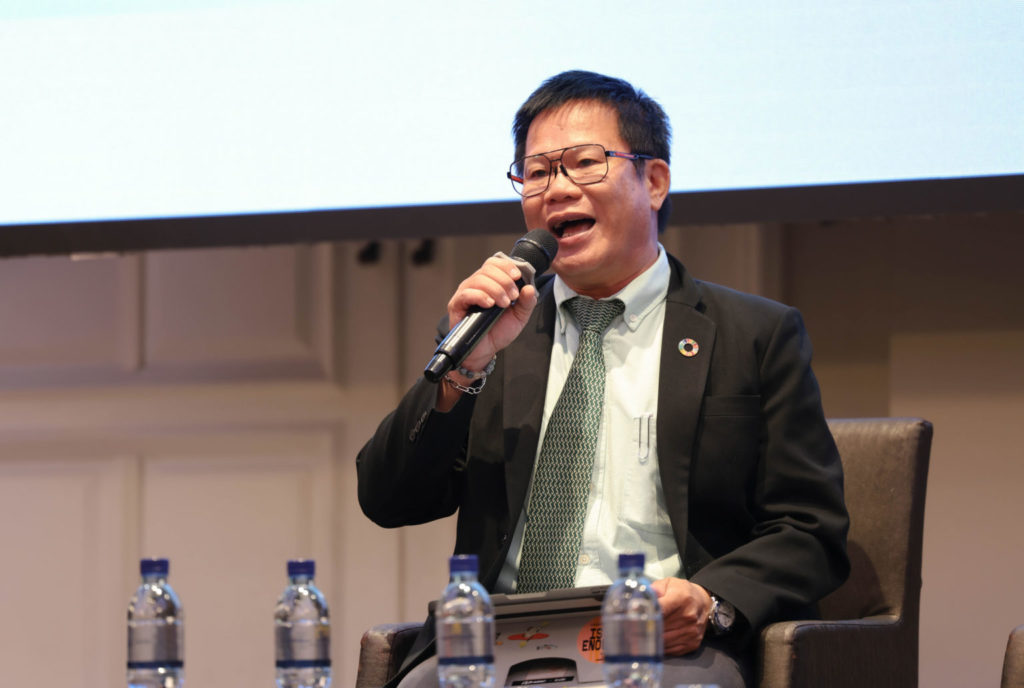
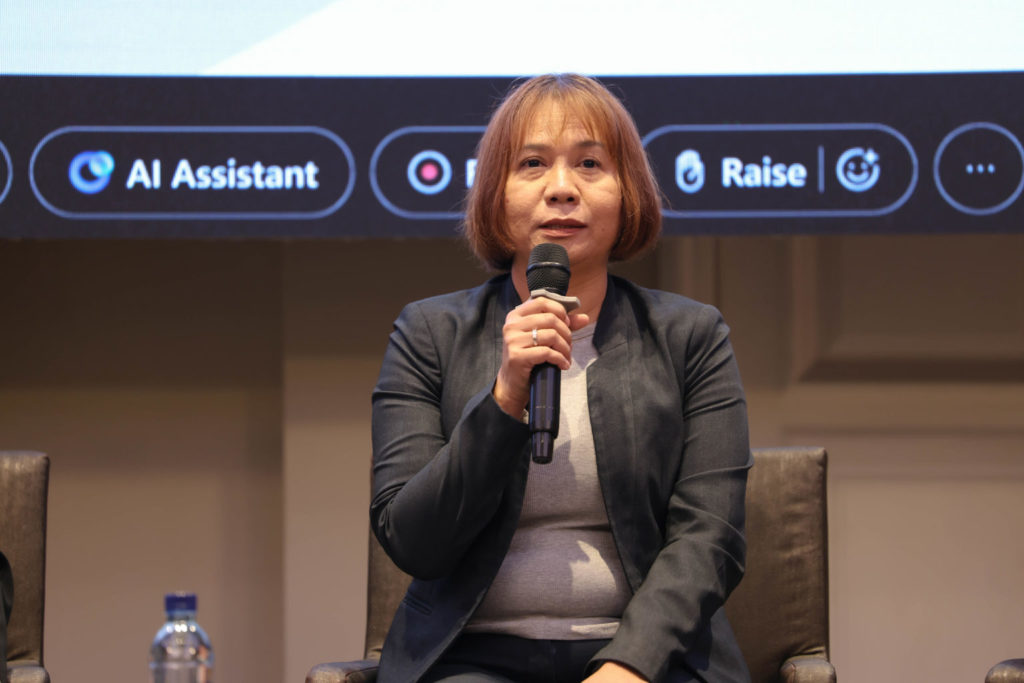
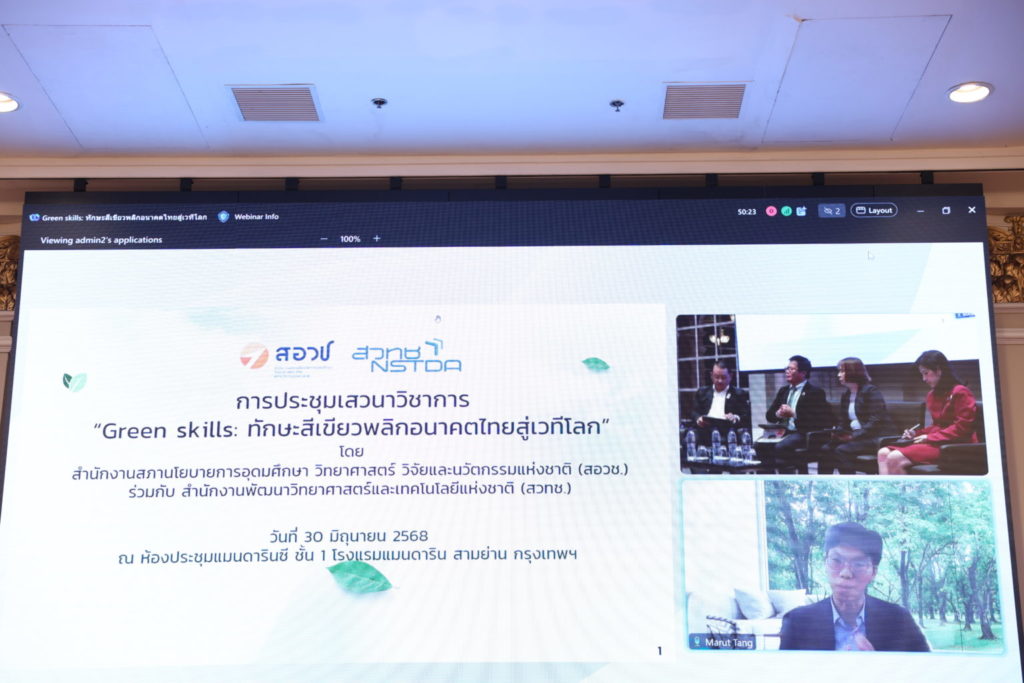
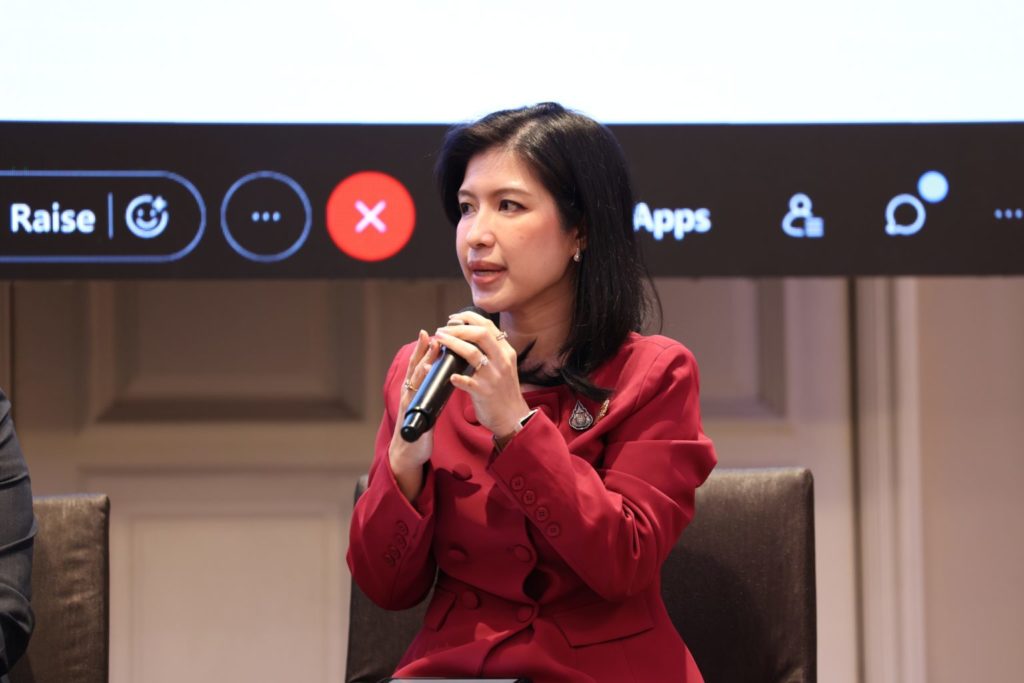
Several initiatives led by the MHESI Office of the Permanent Secretary and NXPO have been launched to address these challenges, including the Higher Education Sandbox, the GenNX Model, and the Work-integrated Learning (WiL) programs. Additionally, the STEMPlus platform has been introduced to align high-skilled workforce development with industry demands, fostering multi-agency collaboration and supporting workforce development incentives. Additional efforts include talent development for the semiconductor and advanced electronics industries through Cooperative Education Plus (Coop+) programs and sandbox courses.
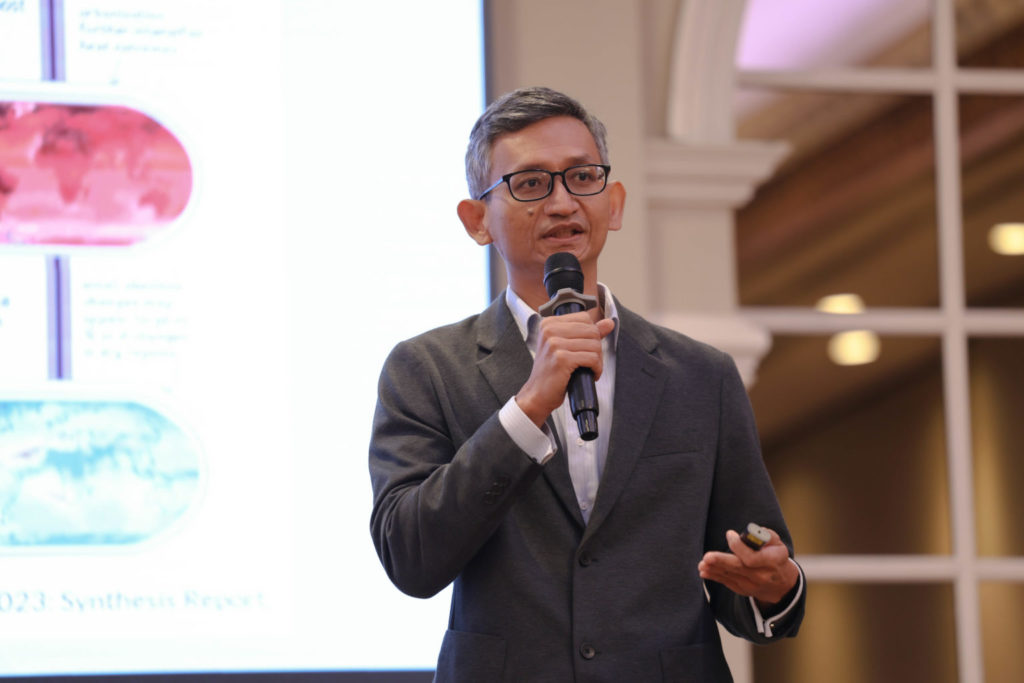
Following the panel, Dr. Sittha Sukkasi of MTEC presented the study’s findings, identifying green skills across three competency levels:
- Basic skills — including attitudes and soft skills such as critical thinking, creativity, environmental awareness, lifelong learning, and communication.
- Intermediate skills — covering cross-sectoral competencies such as systems thinking, sustainability reporting, digital literacy, waste management, and green procurement.
- Advanced skills — comprising sector-specific technical skills. The study focused on 15 priority sectors: future mobility, intelligent electronics, tourism, agriculture and biotechnology, future food, industrial robotics, aviation and logistics, energy, biofuels and biochemicals, digital, healthcare, defense, sustainable economy enablers, training and education, financial services, and research and development.
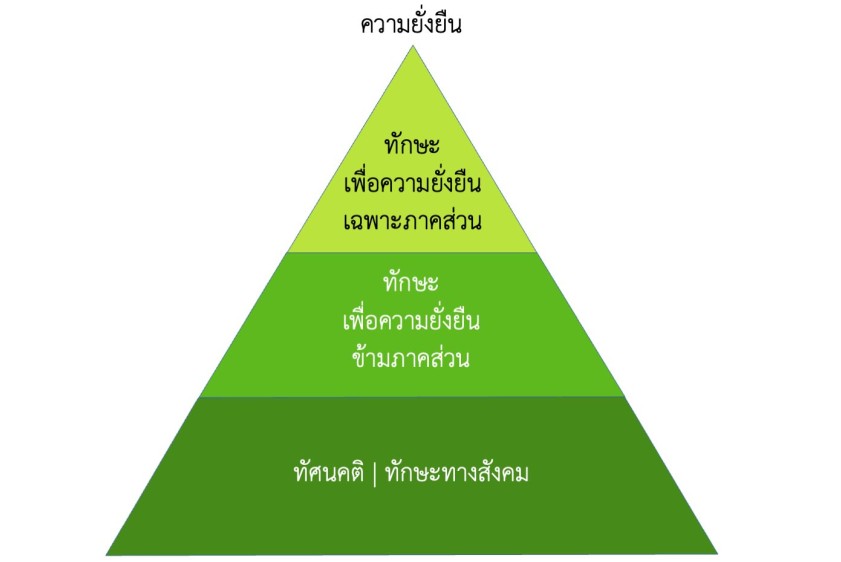
The study also identified skills crucial for short-term greenhouse gas reduction and proposed pathways for developing sustainability-related competencies. It further outlined key success factors, internal and external challenges, strategic considerations, and the roles of different sectors in driving Thailand toward a sustainable, net-zero future.
